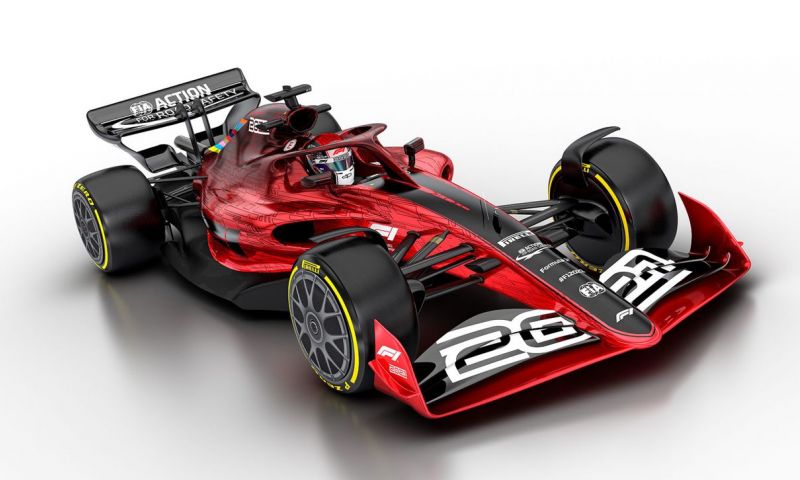Postpone the new F1 rules in 2022, or not? The most important rules at a glance
F1 News

The rule and regulation book was meant to be reprinted ahead of the 2021 season. New rules for the cars and new rules for the teams. This is expected to bring the field closer together and create more competition. All of this will continue in some form, as it was decided last year to postpone the introduction of the new rules by a year. As a result, the teams will largely use the same material as last year this year.
Postpone rules for another year?
The introduction of the completely new regulations that apply to certain aspects is planned for 2022. However, rumours have it that it will be postponed to 2023. Formula 1 denies that, but where there is smoke, there is usually fire. Especially in Formula 1, where the wildest rumours are always circulating. It is by no means certain, but what were those important adjustments again?
Now we will not discuss each line in the rules step by step, but we will go through the most important changes to refresh the memory. That starts with the most famous adjustment or actually limitation: the budget cap.
Budget cap is in effect
An important rule that is part of the set of regulations to make the sport more exciting and attractive is a restriction on the expenditure that the teams make. This rule is the only one that has not been postponed to 2022, which means that the teams will have to deal with a significant reduction in their spending this season. At least, the big teams, because the small teams do not even reach the set budget cap of 145 million dollars. This ceiling will continue to fall in the coming years, creating a more level playing field financially.
Adaptation of the cars
The most significant changes apply to the cars. This is not about the power sources, because they will continue to be used until 2026. The appearance of the car will change and we see that first in dealing with the aerodynamics. Let's face it, the cars currently look cutting-edge which looks spectacular. A disadvantage with the current wing constructions is that cars can hardly follow each other due to the "dirty air" it causes. With simplified wings, following becomes a lot easier, which should result in more overtaking actions. The bargeboards will also disappear as part of the new aero rules. In short, they will become simpler in nature.
Another important part is that 18-inch wheels will be used instead of the 13 inch currently in use. This makes the cars about a second or two slower, as James Allison of Mercedes said, but this is in line with the philosophy that F1 cars should look even more spectacular in general. They already do that in itself, but it should be a bit more simplistic in nature, so that it can also appeal to the youngest among us, for example. Because of this rule, it is no longer allowed to build the strangest constructions on the cars, which we have seen several times over the years.
Other weekends
With the increase in the number of races on the calendar, it must remain manageable for everyone. Especially for the mechanics and team members who are often away from home longer than the team bosses and drivers. Experiments have already been carried out with a two-day weekend in 2020, but it is not yet possible to speak of a good test. Formula 1 may repeat that several times in 2021. Also, the "parc fermé" rules are being tightened up, so that even less work on the cars is allowed. Also, the press conferences were to take place on Friday, a day later than is currently the case. All this to make the weekends more compact and with a goal of 25 races a year in the future, that's not a bad idea.
So much for a very global summary of the most important changes in the pipeline. The rules are already in line with the teams and will also be enforced as soon as we enter 2022. Provided, of course, it continues. However, given the rumours that are now circulating, the question is whether it is wise to allow these rules to continue. Below is both a pro and a counter-reasoning.
Postpone: do - With the current developments in the world, the many restrictions that are in force could cause problems. Of course, Formula 1 knows how to handle changing conditions. They proved that in 2020. But we must not forget the factories, which under different circumstances - depending on the rules in force in the country - have to develop a new car in an unusual way. This could, hypothetically, lead to delays and the question is whether everyone can get the most out of it. Every situation is different and that may lead to an unequal battle. That is contrary to the aim of these new regulations, which is to create a fairer fight.
Postpone: don't - With the postponement of the new rules again, two general impressions arise. On the one hand, the teams may be in financial conflict even further. After all, they have to deal with the current car, despite development restrictions, but at the same time, they also have to develop the new car. If that continues year after year, then the end is of course lost. Or what about the Mercedes dominance? In 2020 they showed that they are the strongest and there is a very good chance that little will change in the ranking in 2021, do we want to see that for another year? Well, there are arguments for every direction.
What do you think? Let us know in the comments below!
This article was written and originally published by Lennard on the Dutch edition of GPblog.com.

